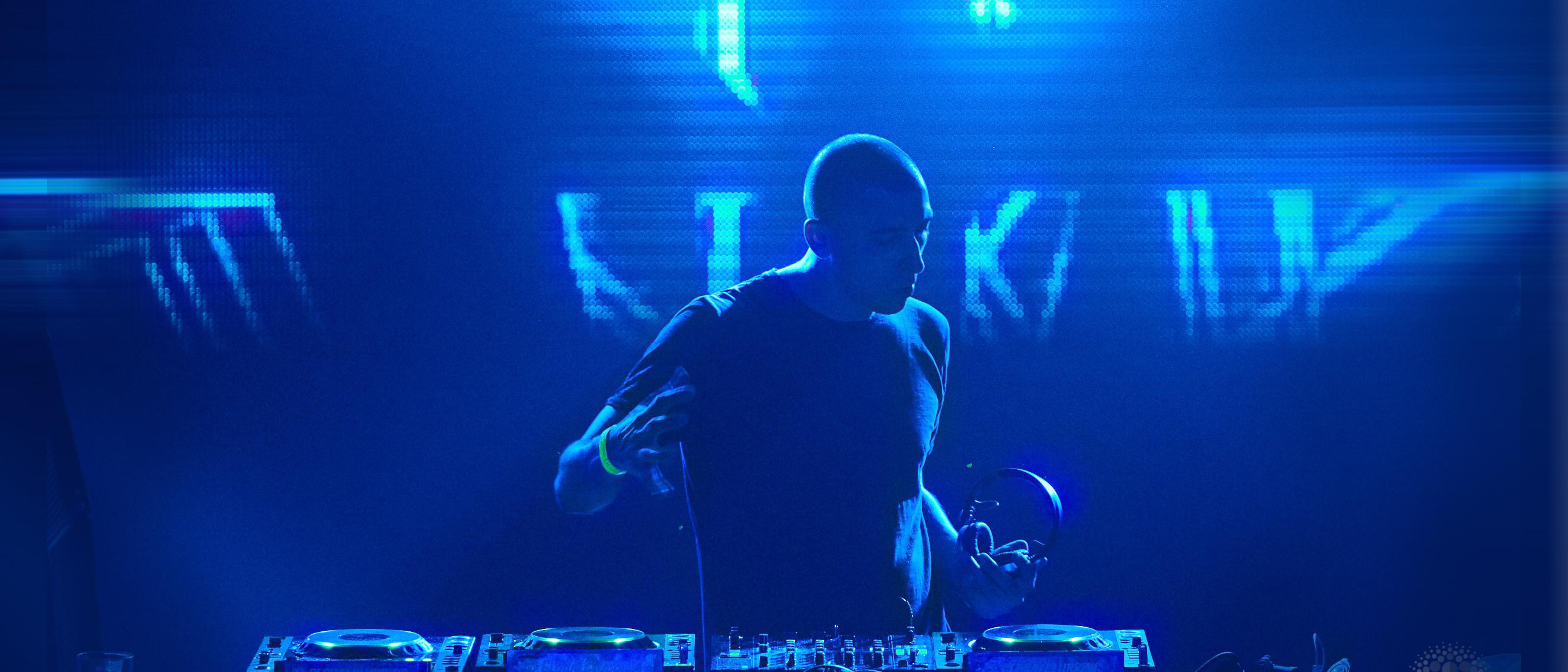In the early '80s, heavy metal was in danger of becoming a spandex-sporting/hairspray-soaked/makeup-smeared parody, but bands like
Metallica brought metal back to its original, straight-ahead approach. With most other metal singers posing for the camera and singing about sex, drugs, and rock & roll,
Metallica singer/guitarist James Hetfield's approach was a much-welcomed break from the norm with his tattered jeans and unkempt hair, while singing (well, shouting) about serious subject matter and bashing out intense metal riffs on either his Gibson Explorer or Flying V.
James Alan Hetfield was born in Downey, CA (a suburb of Los Angeles) on August 3, 1963, to Christian Science parents, a religion he would dismiss later on. Feeling isolated from his high school classmates (and in the wake of his mother's death when he was a teenager), Hetfield turned to playing guitar and the sounds of '70s heavy metal:
Black Sabbath,
Thin Lizzy,
Aerosmith,
AC/DC,
UFO, and
Blue Oyster Cult. His enlistment in a few garage bands followed (two being Obsession and Leather Charm), yet didn't lead to much. But he would soon find a kindred musical spirit from an ad in the local music paper placed by a L.A.-by-way-of-Denmark drummer/metal fan,
Lars Ulrich.
Ulrich turned Hetfield on to the sounds of the New Wave of British Heavy Metal movement (
Judas Priest,
Iron Maiden,
Motorhead,
Diamond Head, Venom,
Saxon,
Angel Witch, etc.) and the two set out to form a similarly styled group together that would be a reaction against all the glam metal bands that were infiltrating Los Angeles. The result would be one of the most popular rock bands of all-time,
Metallica.
After relocating to San Francisco in early 1983, the band (which included bassist
Cliff Burton and guitarist
Dave Mustaine) created quite a buzz in the metal underground, leading to a subsequent record deal.
Mustaine was replaced by
Kirk Hammett in time for the quartet's debut, Kill 'Em All, as Hetfield created his own identifiable heavy and precise rhythm guitar style (using almost all downstrokes with his picking hand and muting the sixth string), a style that's been infinitely copied subsequently by other metal/thrash bands. More classic albums followed (Ride the Lightning, Master of Puppets) before Metallica endured their greatest tragedy -- the death of
Burton in late 1986. Undeterred, Hetfield and his bandmates soldiered on with
Jason Newsted taking
Burton's place. The band's greatest commercial success occurred with this lineup: 1988's And Justice for All and 1991's self-titled release, during which Hetfield recreated his public image from a skateboarder to a
Ted Nugent-esque man's man. It also must be said that Hetfield is probably one of the most accident-prone rock musicians -- he's been sidelined several times during tours (with a roadie stepping in to handle his guitar parts) from broken bones due to skateboarding accidents in the '80s and from 2nd degree burns he suffered from an on-stage pyro accident in 1992.
In addition to his
Metallica duties, Hetfield has also found time to guest on friend's albums, some credited (
Primus' 1999 all-star affair Antipop), and some not (ex-
Faith No More guitarist
Jim Martin's solo debut Milk and Blood and
Corrosion of Conformity's Wiseblood). Hetfield and
Metallica continue to crank out best-selling albums and sold-out tours, although it appeared as though the group may be entering an uncertain phase of their career in early 2001, when a tell-all band interview in Playboy Magazine (which saw Hetfield recall his troubled early family life and new role as a husband/father, as well as criticizing his bandmates) was quickly followed-up by
Newsted's exit from Metallica. ~ Greg Prato, Rovi


